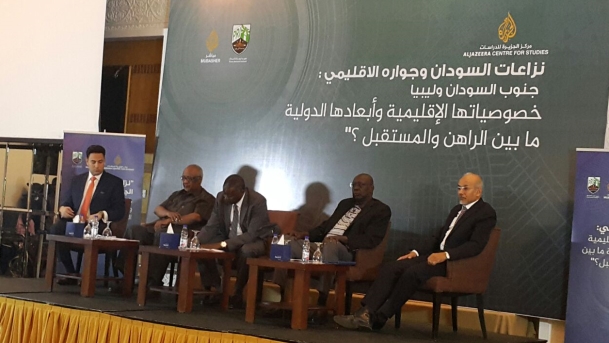
The root cause of most conflicts within Sudan and its neighbouring countries remains is the competition for resources. This conclusion of the seminar organised in Khartoum on 26 October 26 2017 by Al Jazeera Centre for Studies (AJCS) in partnership with the Peace Research Institute (PRI) at the University of Khartoum in collaboration with Al Jazeera Mubasher (AJM).
The seminar also concluded that conflicts in Sudan and its vicinity, namely Libya and South Sudan, have persisted for a number of reasons: the failure of the disputing parties to reach amicable settlements, and the intervention of regional and international parties that found a fertile ground to manipulate and capitalise on these conflicts.
The speakers in the seminar agreed that the future of these disputes hinges on the ability of the conflicting parties to reconsider their respective development polices and their will to widen the scope of participation in power and the decision-making process.
The resolution of conflicts within and around Sudan also depends on the ability of these countries to fight corruption and enforce the standards of transparency and good governance, stressed the speakers.
Under the title, “Conflicts in Sudan, South Sudan and Libya”, the seminar hosted Dr. Tayeb Zein Al-Abidin, professor of political science at the University of Khartoum; Dr. Mohammed Mahjoub Haroun, President of PRI; Dr. Lual Deng, Director of Ebony Center for Strategic Studies; and Senussi Bsaikri, director of the Libyan Center for Research and Development.
The seminar can be watched through the following link: https://www.youtube.com/watch?v=9WleWbBn_eY.